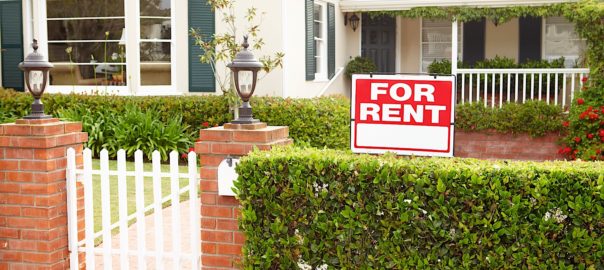Adding A Rental Property To Your Portfolio
By JD Esajian on April 12, 2019
Rental properties are the quickest path to sustaining true long-term wealth. Some of the wealthiest people in the country have made their money on the strength of rentals. All it takes is just one rental property to have a meaningful impact on your portfolio. However, all rentals are not created equally. Buying a property and putting a “for rent” sign on the front lawn does not guarantee success. There are several due diligence steps you need to cover to give yourself the best possible chance for profit. Overlooking even one area will leave you stuck with a property you desperately want to get rid of. Before getting too involved in the process you should go through your rental property checklist. Here are five important areas you should cover if you are considering adding a rental property to your portfolio.
- Business Strategy: As great as rental properties can be, they are not for everyone. Even though you can see the potential in a rental, if they don’t fit with your business strategy you should consider passing. As obvious as it sounds, rental properties are long term commitments. Depending on the property type you will need anywhere from 15-25% down payment. This money will be tied up in the property for at least a few years. If your bread and butter are flips, you need to know that you won’t have access to this capital if a deal becomes available. Even if you have equity it is not easy pulling it out on an investment property. Home equity lines of credit and cash out refinances are much different on non-owner-occupied properties. As long as you are comfortable with having your money tied up and a rental fits your strategy you should move forward with the rest of your due diligence.
- Numbers: As we stated, buying a property and assuming it is a good rental is not how it works. You need to run the numbers and know exactly what you are getting into. Knowing the numbers means more than just knowing the monthly rent. You need to know how much the annual property taxes have changed over the last five years. You should know what utilities you are on the hook for and how much they are. You should estimate snow removal and lawn maintenance as well as costs for basic wear and tear on the property. You should look at other rental properties in the area to get an idea of the variance in monthly rent amounts. The more realistic you are with your numbers, the stronger the investment will be. You can easily make the numbers work to support almost any position you have. However, only when you are a few months into the property will you regret your diligence. The numbers are the truest indicator of what kind of investment you have. Always view these with an open mind and don’t let your desire to own a rental influence you.
- Management: Rental properties are like parenting a teenager. You may go weeks, even months, without anything eventful happening and then out of the blue be hit with three issues in a week. When these happen, you need to make them a priority and deal with them asap. Regardless of the number of properties you own, you need to find a way to manage them. Every rental property will get a call for a clogged toilet or a broken lock at some point during the lease. Dealing with these may not seem major to you, but they are to your tenant. Before you make an offer on a rental, you need to come up with a plan for how you will manage the property. If you have a full-time job that doesn’t allow you to leave the office, you need to find someone you can call in a pinch. If you want to self-manage you need to start building a list of contacts, you can call to deal with whatever comes your way.
- Market: A rental property is like any other piece of real estate in that the location is critical. A good location helps increase demand which in turn will help you increase your rent. On the flip side, if your property is in a less desirable market you will have a tough time finding tenants which leads to a world of other problems. You will be forced to either lower your rent or slack on your screening which can open the door to taking on a bad tenant. A bad tenant may not only wreck your property, but you will have to constantly chase the rent, or possible deal with an eviction. A property in a good market alone doesn’t guarantee good tenants, but it certainly gives you the best possible chance for success.
- Data: It is essential to trust the data that is right in front of you. Regardless of where the property comes from you need to do your own independent research of it. It is ok to fact check the rental amount, utility costs, market rents and property information. If you blindly go into the property you have no recourse if something isn’t right. In most cases the data present will be accurate, but all it takes is once to cause a problem.
Rental properties are great investments, but they are not for everyone. Before you make the leap to the world of landlording make sure you know exactly what you are getting into.